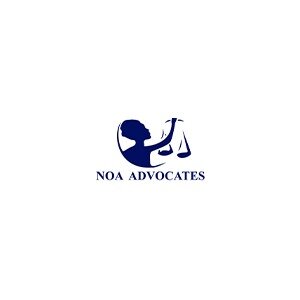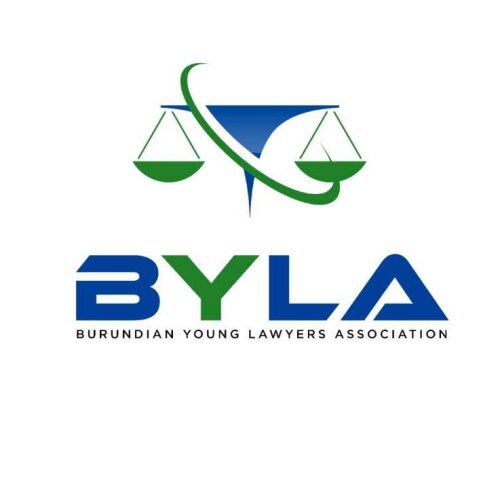Best Energy Regulatory Law Lawyers in Burundi
Share your needs with us, get contacted by law firms.
Free. Takes 2 min.
Or refine your search by selecting a city:
List of the best lawyers in Burundi
About Energy Regulatory Law in Burundi
Energy Regulatory Law in Burundi refers to the body of legislation and regulations that govern the production, distribution, and consumption of energy within the country. These laws are designed to ensure the sustainable development of the energy sector, facilitate fair competition, protect consumer rights, and encourage the adoption of efficient and renewable energy sources. The main focus is often on electricity, oil, gas, and increasingly, renewable energy projects. The legal framework also defines the roles and responsibilities of government agencies, private sector participants, and consumers within Burundi's energy sector.
Why You May Need a Lawyer
There are various situations in which you might require legal assistance regarding Energy Regulatory Law in Burundi. These include:
- Seeking licenses or permits for generating, distributing, or selling energy
- Complying with environmental and safety regulations in energy projects
- Negotiating or drafting contracts with government agencies or private partners
- Resolving disputes regarding tariffs, supply agreements, or access to energy infrastructure
- Obtaining approvals for renewable energy projects or foreign investments
- Understanding your rights and obligations as a consumer or energy provider
- Addressing compliance with anti-monopoly and fair competition laws in the energy sector
Local Laws Overview
Energy Regulatory Law in Burundi is primarily governed by several key pieces of legislation and regulatory bodies. The electricity sector is regulated under national laws that set out how energy is produced, transmitted, and distributed. The Autorité de Régulation des Secteurs de l’Eau Potable et de l’Energie (AREEN) is the main regulatory agency overseeing the sector. Key aspects include:
- Licensing System: All providers of energy services must be properly licensed by relevant authorities, with strict conditions for renewable and non-renewable energy projects.
- Tariff Regulation: Electricity and other energy tariffs are subject to approval and regulation by AREEN, with guidelines on fair pricing and consumer protection.
- Investment and Competition: Both local and foreign investors must comply with specific investment codes and competition laws.
- Environmental Compliance: Energy projects often require approval from environmental authorities to ensure sustainable development.
- Access and Service Obligations: Rules ensure non-discriminatory access to the energy grid and set minimum service standards for providers.
Frequently Asked Questions
What is the main regulatory body for electricity and energy in Burundi?
The Autorité de Régulation des Secteurs de l’Eau Potable et de l’Energie (AREEN) oversees energy regulation, setting licensing requirements, tariffs, and overseeing compliance.
What types of energy projects require a license in Burundi?
Any project involving the production, distribution, or sale of energy, including renewable and non-renewable sources, requires a license from AREEN.
How are energy tariffs set in Burundi?
Tariffs are proposed by operators but must be approved by AREEN, which evaluates them to ensure fairness, transparency, and affordability for consumers.
Are there incentives for renewable energy development?
Yes, Burundi has programs and policies to encourage investment in renewables, including potential tax incentives and simplified permit procedures, depending on the project scale and location.
What environmental regulations apply to energy projects in Burundi?
Energy projects must comply with the national environmental code, which typically requires environmental impact assessments and approvals before development can begin.
Can foreign companies invest in Burundi's energy sector?
Foreign companies are allowed to invest but must comply with local regulations regarding company registration, investment approval, and sector-specific requirements.
What happens if there is a dispute with an energy provider or regulator?
Disputes can often be resolved through negotiation or mediation, but parties may appeal to the administrative courts or request intervention from AREEN as a mediator.
What are the penalties for operating without a license?
Operating energy facilities without a valid license can result in significant fines, closure of the facility, and even criminal liability depending on the infraction.
Are there requirements for public consultations in large energy projects?
Large projects, especially those with environmental impact, usually require public consultations as part of the approval process, allowing affected communities to express their views.
Where can I find official information or get help for legal compliance?
You can access information and assistance from government bodies like AREEN, the Ministry of Energy, or consult with local legal professionals specializing in energy law.
Additional Resources
If you require more information or assistance, the following resources may be helpful:
- Autorité de Régulation des Secteurs de l’Eau Potable et de l’Energie (AREEN)
- Ministry of Energy and Mines of Burundi
- National Environmental Agency for environmental compliance
- Burundi Investment Authority (API) for investment procedures
- Local bar associations for referrals to specialized energy law practitioners
Next Steps
If you believe you need legal assistance in the field of Energy Regulatory Law in Burundi, consider the following steps:
- Identify your specific legal concern or area of interest within the energy sector
- Gather all relevant documents and details related to your issue
- Contact a lawyer or law firm with experience in energy, environmental, or administrative law in Burundi
- Consult with the relevant regulatory agency (such as AREEN) for technical guidance
- Attend any required public hearings or consultations for your project
- Follow up on regulatory processes and deadlines to remain compliant
Finding experienced legal support is crucial to navigating the often complex energy regulatory landscape effectively and avoiding potential legal pitfalls.
Lawzana helps you find the best lawyers and law firms in Burundi through a curated and pre-screened list of qualified legal professionals. Our platform offers rankings and detailed profiles of attorneys and law firms, allowing you to compare based on practice areas, including Energy Regulatory Law, experience, and client feedback.
Each profile includes a description of the firm's areas of practice, client reviews, team members and partners, year of establishment, spoken languages, office locations, contact information, social media presence, and any published articles or resources. Most firms on our platform speak English and are experienced in both local and international legal matters.
Get a quote from top-rated law firms in Burundi — quickly, securely, and without unnecessary hassle.
Disclaimer:
The information provided on this page is for general informational purposes only and does not constitute legal advice. While we strive to ensure the accuracy and relevance of the content, legal information may change over time, and interpretations of the law can vary. You should always consult with a qualified legal professional for advice specific to your situation.
We disclaim all liability for actions taken or not taken based on the content of this page. If you believe any information is incorrect or outdated, please contact us, and we will review and update it where appropriate.
Browse energy regulatory law law firms by city in Burundi
Refine your search by selecting a city.











